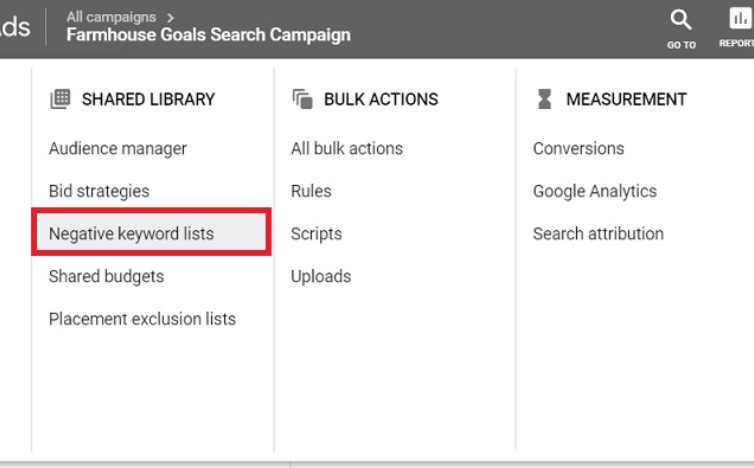Running a successful Google Ads campaign requires more than just finding the right keywords. Negative keywords are an often overlooked but essential component of effective ad targeting. They ensure your ads are seen by the right audience, saving money and improving results.
What Are Negative Keywords?
Negative keywords are terms or phrases that prevent your ad from being triggered by irrelevant searches. For instance, if you’re advertising premium coffee, adding “free” as a negative keyword prevents your ad from appearing when someone searches for “free coffee.”
By refining your audience, negative keywords reduce wasted ad spend and enhance overall campaign efficiency.
Benefits of Using Negative Keywords

1. Improved Ad Targeting
Negative keywords help you filter out audiences that are unlikely to convert. This ensures your ads are shown to users who are genuinely interested in your offerings.
2. Cost Savings
Clicks from irrelevant searches can quickly drain your ad budget. Negative keywords prevent these unproductive clicks, allowing you to allocate resources to high-value audiences.
3. Higher Click-Through Rate (CTR)
When your ad is displayed to the right audience, it’s more likely to attract clicks. A higher CTR not only boosts engagement but also improves your Quality Score, reducing your cost per click (CPC).
4. Better Conversion Rates
By filtering out uninterested users, negative keywords increase the likelihood that clicks lead to conversions. This enhances the return on investment (ROI) of your ad campaigns.
See Also: The Role of Keywords in Successful Google Ads Strategies
How to Find Negative Keywords
Analyze Search Terms Reports
Google Ads provides a search terms report showing what users searched for before clicking on your ad. Look for irrelevant terms and add them to your negative keyword list.
Leverage Keyword Research Tools
Keyword research tools like Google Keyword Planner can help identify related search terms that may be irrelevant to your business.
Consider Your Business Goals
Think about searches that don’t align with your products or services. For example, if you sell luxury handbags, you might exclude terms like “cheap” or “discount.”
Best Practices for Using Negative Keywords
- Regularly Update Your List
Campaigns evolve, and so do search behaviors. Continuously review your negative keyword list to keep it relevant. - Use Broad, Phrase, and Exact Matches
Google Ads allows different match types for negative keywords. Choose the match type that best fits your campaign goals. - Separate Campaign and Ad Group Levels
You can apply negative keywords at both campaign and ad group levels. Use this feature strategically to refine targeting.
Call us: Contact us for Google Ads Services: +971 58 830 3415
Conclusion
Negative keywords are indispensable for running a cost-effective and high-performing Google Ads campaign. They improve targeting, save money, and boost conversions by ensuring your ads reach the right audience. Incorporate them into your strategy to maximize your ad performance and ROI.
By understanding and leveraging negative keywords, you’ll take your Google Ads campaigns to the next level.
